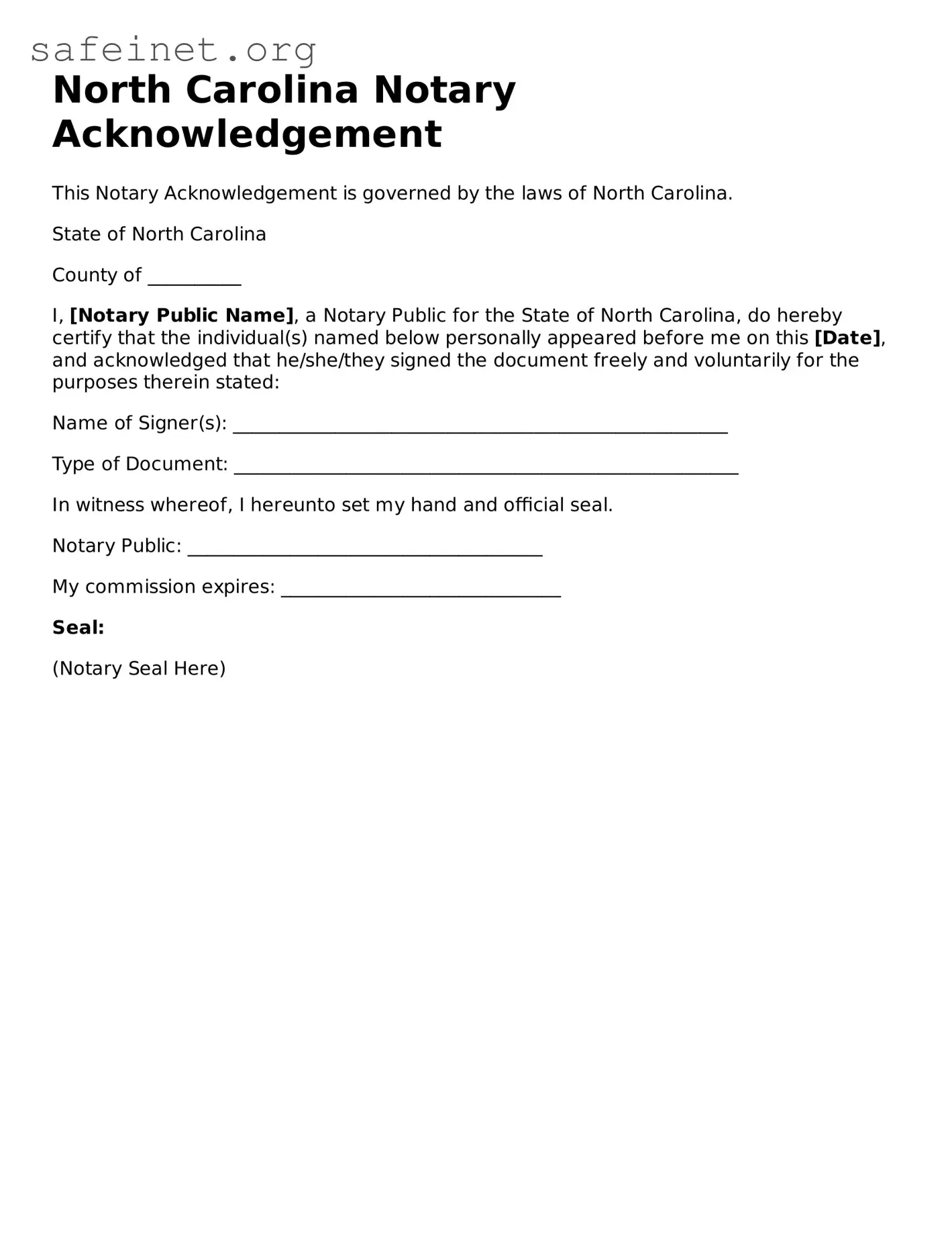What is a Notary Acknowledgement form in North Carolina?
A Notary Acknowledgement form in North Carolina is a document that verifies the identity of the signer. This form ensures that the individual signing the document has done so voluntarily and is aware of what they are signing. It is an essential component of many legal documents, including contracts, deeds, and affidavits, to enhance their authenticity.
Who can serve as a notary public in North Carolina?
In North Carolina, any individual who is at least 18 years old and a resident of the state can become a notary public. They must complete an approved notary public education course and pass an exam. Once appointed, a notary can perform acknowledgments, administer oaths, and perform other duties defined by state law.
What information is required on the Notary Acknowledgement form?
The Notary Acknowledgement form requires specific information. This includes the name of the individual signing the document, details about the document being signed, and the date of the acknowledgment. The notary’s signature and seal must also appear on the form to validate the acknowledgment. Accurate and complete information is vital for the document’s acceptance.
Is the Notary Acknowledgement form necessary for all documents?
No, a Notary Acknowledgement form is not necessary for every document. However, many legal documents, especially those that require recording with government entities, often require notarization. It's advisable to consult legal counsel if there’s any uncertainty regarding the necessity of a notary for specific documents.
How does the process of obtaining a Notary Acknowledgement work?
To obtain a Notary Acknowledgement, the signer must appear in person before a notary public. The signer should present a valid photo ID to verify their identity. After ensuring the signer is willing and aware of what they are signing, the notary will complete the acknowledgment by filling out the required information and applying their signature and seal to the document.
What happens if I don’t have a Notary Acknowledgement when required?
Failing to include a Notary Acknowledgement when required can lead to significant issues. The document may be deemed invalid or unenforceable. This could affect legal rights, financial transactions, or property transfers. It's important to ensure that all necessary notarization is completed to avoid complications.
